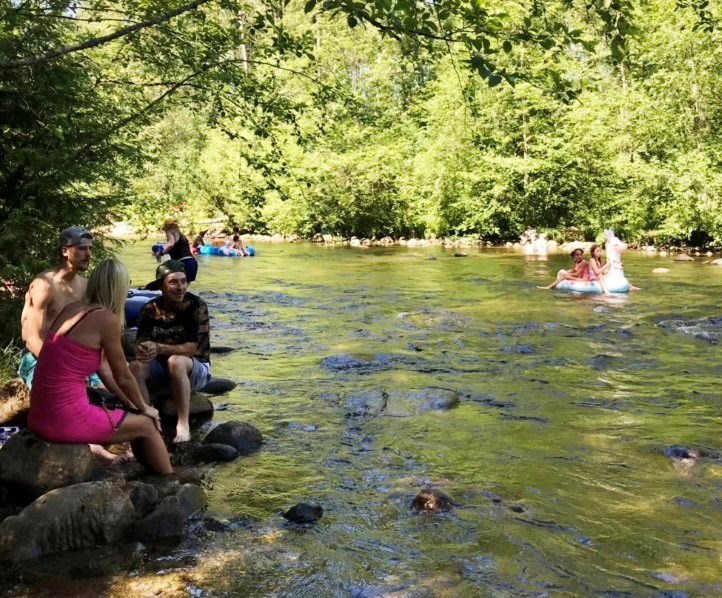Coquitlam residents tried to find ways to beat the extreme heat waves this summer.
But too few took advantage of the civic facilities and private businesses that were open.
That was one conclusion after a report was presented Monday before the city’s council-in-committee, looking at “lessons learned” following the hot spells in June, July and August.
Mayor Richard Stewart said better communication was needed by Fraser Health so that the municipality could get the word out about the public health emergency and offer solutions.
“Fraser Health acknowledged that they didn’t do it well,” Stewart said, following a mayors’ meeting with Fraser Health. “I suspect that everyone is looking inwardly at their roles.”
According to Stephanie James, the city’s legal and bylaw services manager, a total of
- 111 visits were made to the Glen Pine Pavilion and Pinetree Community Centre cooling facilities between June 28 and 30
- 90 visits were made to the Glen Pine Pavilion and Poirier Sport and Leisure Complex (PSLC) cooling centres between July 29 and Aug. 1
- 100 visits were made to the Glen Pine Pavilion, PSLC and City Centre Aquatic Complex cooling venues between Aug. 13 and 15
The first “heat dome” — which started at the end of the academic year and prompted School District 43 to shutter Tri-City schools early — was the “most fatal natural disaster in Canadian history,” James said, reporting that 569 people in B.C. died from the extreme heat between June 20 and July 29 — a 300 per cent increase over the same period in 2020.
Data from the BC Coroners Service also shows people ages 65 or older accounted for 79 per cent of the deaths; many of them lived alone in homes that didn’t have air conditioning.
Stewart said Fraser Health is trying to identify at-risk residents who are living on their own “and who might not have the resources to handle” the next heat wave when it arrives.
“I think Fraser Health and other regions will have to step up to try to identify for residents that a warming planet will likely result in this kind of thing more often,” the mayor said, “and that communication, in that regard, will need to be forthcoming because a lot of these folks didn’t leave their apartment and a lot didn’t contemplate a cooling centre” in Coquitlam.
“That was certainly a challenge for so many of them,” Stewart added.
James laid out 10 actionable items for the city to follow to prepare for future heat waves:
Regional Leadership
- advocate for the provincial coordination of responses to regional health emergencies
- initiate improved communication with Fraser Health
- continue engagement within the Tri-Cities to achieve alignment on response activities
Internal Risk Planning
- update the city’s Hazard, Risk and Vulnerability Analysis (HRVA)
- establish emergency plan development priorities and revision cycles
- determine emergency response activity scopes, associated costs and cost-recovery options, as well as potential service impacts
- continue cross-department collaboration to embed recurring response activities within operations
“Whole of Society” Approach
- participate in any additional consultation as part of the Emergency Program Act update
- refine the city’s emergency management program to comply with new legislation
- expand the city’s tools, resources and educational seminars for vulnerable populations, as well as residents, institutions and businesses
James acknowledged that Coquitlam Public Library and Coquitlam Centre also opened as cooling centres this summer; Douglas College has been tapped by the city as a future cooling site.
“We need families to understand the dangers to their parents and grandparents, and we need to make sure that everybody gets the message,” Coun. Chris Wilson said.
And Coun. Dennis Marsden pressed residents to check on elderly neighbours when the temperatures are high. “Let’s make sure we keep our residents safe,” he said.




